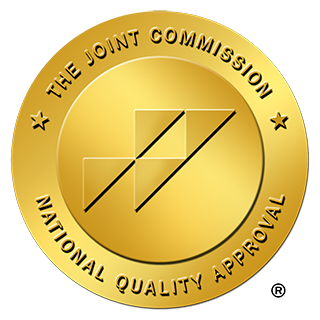
There may be occasions in your life when you have to take time off work. Sometimes, this may be due to a serious illness or you may need to care for a family member full-time for a few weeks. The Family and Medical Leave Act (FMLA), drafted in 1984 and passed in 1993, is a U.S. federal law that declares employers must provide eligible employees 12 weeks of unpaid leave to deal with serious health problems.
The law is supposed to help Americans balance their work and home commitments. However, not everyone is eligible and not all circumstances are covered. Understanding FMLA helps you know your rights when you need to take time off work for rehabilitation or addiction recovery treatment.
What Is FMLA and How Is It Used
Is FMLA insurance? No—it’s a law that ensures you’re covered for those times in life when you have to take time away from work. FMLA is used in various situations when an employee is eligible for unpaid leave. Eligibility is partly based on the type of organization you work for. Your employer must have 50 or more workers unless it’s a:
- Government agency
- Elementary school
- Secondary school
As well as working for an eligible employer, you must have worked there for a minimum of 12 months. In those 12 months, you must have worked a minimum of 1,250 hours. Also, the minimum of 50 workers has another caveat: those 50 workers must work within 75 miles of your worksite. So, if you worked for a global retail company with thousands of employees, but only five people worked in or near your office, you may not be eligible.
You may live in a state with its own family leave rules. The U.S. Department of Labor lists those states and the relevant rules and eligibility criteria.
People commonly use FMLA for the following reasons:
- Pregnancy — pregnancy can be complicated, with conditions like preeclampsia requiring monitoring within a hospital setting or extended bed rest.
- Hospitalization — any disease that requires an overnight hospital stay will stop that individual from working, but may also impact partners and spouses who need to take time off under FMLA.
- Chronic health conditions — any condition that incapacitates an individual can leave them unable to work. They may also need to take rest to prevent themselves from becoming incapacitated.
Other Situations Covered by the FMLA
As well as medical situations, there are other times when the FMLA may apply.
Expanding Your Family
Employees of any gender may take time off due to the addition of a child to the family. This may be the birth of a child, but it can also include adopting or fostering a child. However, you must take your leave within one year of the birth or placement of the child.
Military Caregiver Leave
If a member of the household is called away on military deployment, the law states that their partner or spouse may request leave for childcare, financial commitments relating to the deployment, or attending military ceremonies. Leave is also made available for those having to provide care to an injured or ill veteran.
What Happens When You Use the FMLA?
When you take leave covered by the FMLA, you’re in a position where your job is protected. Your employer is forbidden, by law, to take any of the following actions:
- Terminate your employment while you are on FMLA-covered leave
- Remove your access to any company-provided benefits, including but not limited to healthcare benefits
- Discriminate or retaliate against you in any way for taking FMLA-covered leave
For example, if someone takes time off to help a partner with a difficult pregnancy, the employer cannot decide to give their job to someone else, no matter its justification. If your employer will not comply with FMLA law or makes your life difficult, you can call the U.S. Wage and Hour Division and report an FMLA violation.
Communicating With Your Employer
Open and honest communication is the key to successful FMLA leave applications.
If you believe you are eligible for leave under the FMLA, you should contact your employer as soon as possible. Make a request in writing to take the leave, stating when you want the leave to start and the reason why you’re taking it. Try to be as honest as possible. Keep a copy of any documents you send and the dates you send them, so you have a clear paper trail of your request.
The next step lies in the hands of your employer. They must ensure that they:
- Respond to your request within five working days to let you know whether or not you are eligible for the leave you’ve requested.
- If you are not eligible for FMLA-protected leave, they must provide at least one clear reason why in their response.
- If you are eligible, your employer should notify you and provide you with a document explaining your rights and responsibilities. This document can be a physical or digital copy. Employers can use Form WH-381 to ensure they’ve provided all the correct information. This form can also be used to request certification such as information from a healthcare provider.
- The employer now has another five business days to designate your leave as FMLA and tell you so — if new information arises, there’s still a chance your leave may not be designated as FMLA-protected.
Remember to provide your employer with any certification they request as quickly as possible to expedite the process. Once you get confirmation that your leave is covered under the FMLA, you can take your time away from work, secure in the knowledge that you’ll be returning to the same role. Employers have to keep your job or a nearly identical one open for you.
FMLA and Inpatient Rehab
Here at Engage Wellness Acton, we work with many clients who have to take time off work for addiction treatment. Common queries we get when people are first reaching out for support include:
- What is FMLA?
- Is FMLA insurance?
- Will my leave for addiction treatment be covered by the FMLA?
We can answer the first two questions confidently using the above information, but the last point is trickier because FMLA eligibility depends on so many factors.
Nobody wants to lose their job due to addiction or substance use disorders. It helps to understand that addiction is an illness, not a choice. While there is still a stigma around seeking help for substance use, we believe that taking that step shows great strength. That’s why we’re never judgmental, only offering compassion and expert recovery treatment.
If your treatment program means you need to take time off work, your position could be protected by the FMLA. To ensure you’re protected, you can try to follow these guidelines:
- Speak to your healthcare provider and ask if they will provide you with a documented referral recommending treatment.
- Ensure you tell your employer that your time off is for medical treatment, rather than simply due to substance use.
- Try and note specific medical treatments you may be having as part of your rehabilitation, or ask for a supporting document from your care provider.
By treating addiction treatment as necessary medical care — which it is — you can work with your employer to ensure your leave is covered by FMLA. Your role should be protected so you can return to work once your program of treatment is over.
FMLA doesn’t protect you from other policies your employer may have regarding substance use. While many employers are supportive and understand that addiction is never a choice someone makes, others may have zero-tolerance policies for any substance use, even outside of work. If these policies impact you, speak with your company’s HR team and ask to see the policies so you have the best information to help manage your situation.
Contact Engage Wellness Acton for More Information
Our state-of-the-art addiction treatment center and compassionate team are here to help you or your loved one take that step on the road to recovery. Call us to discuss what your treatment options may be, which can help you communicate better with your employer about applying for FMLA-protected leave. Seeking help is the most important part of your journey — contact Engage Wellness Acton, MA and let’s work together to help you get your life back on track.



